Tofu or Beef Pad See Ew
Pad See Ew is what I would consider Thai fast food, right up there with all of our favorite takeout noodle dishes like Pork Lo Mein, Singapore Noodles, Pad Thai, and Drunken Noodles.
It comes together quickly as long as all the ingredients are prepared ahead of time and ready to go into the wok! It's no wonder this deliciously chewy Pad See Ew is a popular street food in Thailand.
Every time I serve any kind of wide rice noodle dish (Pad See Ew included) there are never any leftovers, and family and friends always have rave reviews!
Note: This post was originally published in February 2017. We have since updated it with improved photos, metric measurements, and more. Enjoy!
What Is Pad See Ew?
Pad See Ew is similar to Chinese Beef Chow Fun in that it's a dish of stir-fried wide rice noodles. It's just as delicious, but the ingredients are slightly different.
Instead of the mung bean sprouts and scallions you find in Beef Chow Fun, Pad See Ew calls for egg and Chinese broccoli. It also has the signature flavor of fish sauce.
We are making our pad see ew with beef, but you can also use chicken, pork, or tofu.
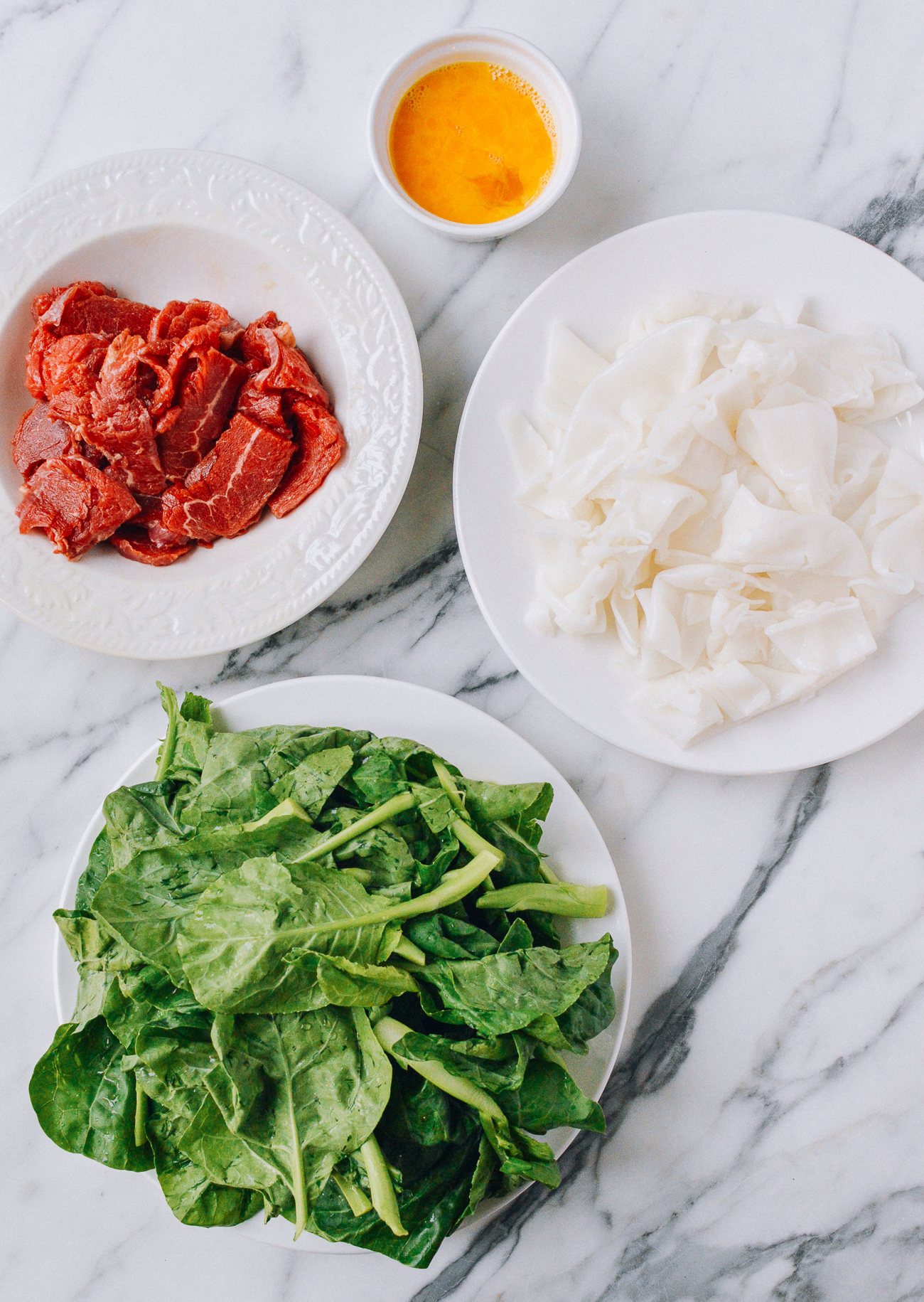
How to Get Wok Hei
Wok hei is that smoky, seared flavor you get out of really great stir-fries. The key is cooking over very high heat.
This recipe makes enough for two or three hungry people, but if you really want restaurant or street food quality wok hei flavor in your Pad See Ew, then you may want to cook this dish in two batches.
Since our home stoves don't get nearly as hot as commercial burners, cooking in smaller batches helps ensure you maintain high heat levels and get some good wok hei going!
One word of caution is that you will need a strong exhaust fan when cooking pad see ew. That or someone to man a fan by your smoke detectors.
A NOTE ON THAI SOY SAUCES
You'll notice that this recipe calls for Thai thin soy sauce and Thai black soy sauce. Click on the links in the ingredients list in the recipe card to check out our comprehensive ingredients glossary, and check out this article on Thai Soy Sauces to learn more.
Now that we've gotten the brass tacks out of the way, let's cook!
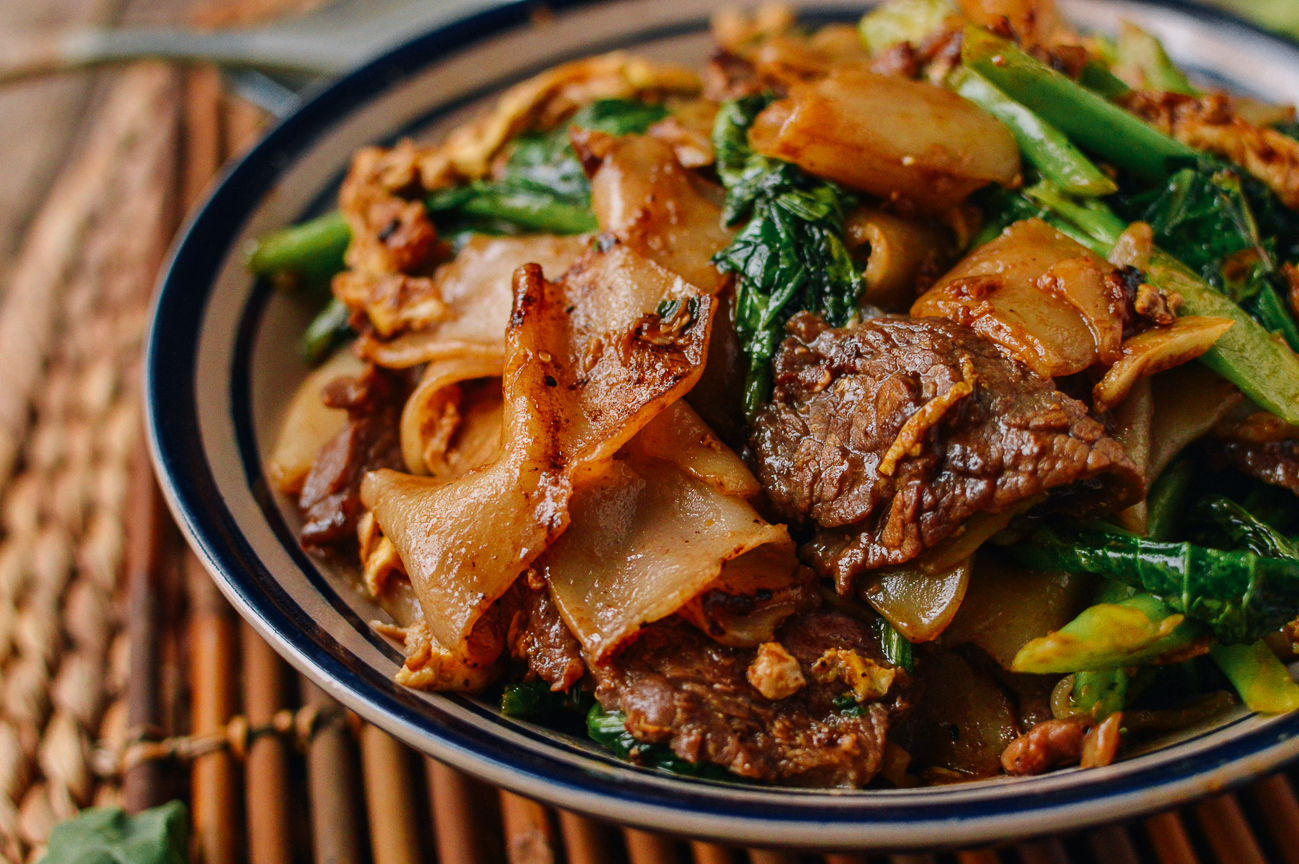
Recipe Instructions
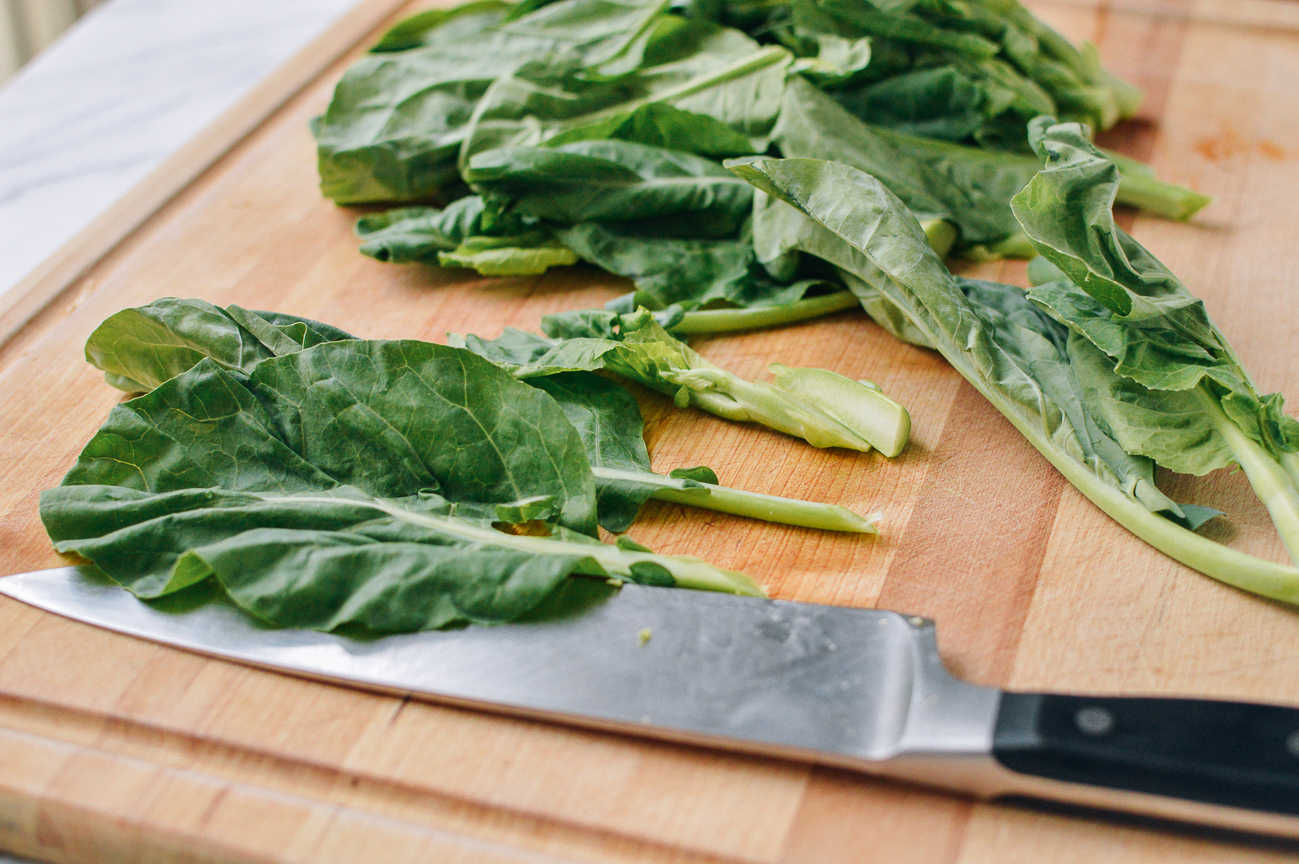
To the flank steak, add the Thai black soy sauce, vegetable oil, and cornstarch (or tapioca starch), and mix until the beef is completely coated. Set aside.
Next, mix the sauce. In a small bowl, combine the oyster sauce, sugar, Thai soy sauce or regular soy sauce, Thai black soy sauce, fish sauce, and white pepper. Stir to mix well.
Make sure your fresh rice noodles are at room temperature. If the noodles are really cold and stiff from refrigeration, rinse them quickly under hot tap water when you are ready to stir-fry the dish.
(This extra step will help you avoid a big homogenous lump of noodles during stir-frying. Be sure to shake off any excess water after rinsing and use them immediately.)
If using a dried rice noodle, follow the directions on the package and make sure you undercook the noodles slightly (al dente), since you will be cooking them again in the wok. After you drain the noodles thoroughly, toss the noodles with a tablespoon of oil. This will prevent them from sticking to the wok.
Heat your wok over high heat until it just starts to smoke, and spread 1 tablespoon of oil around the perimeter of the wok evenly to coat. Sear the beef until it is 80% cooked through, and transfer back to the marinade bowl.
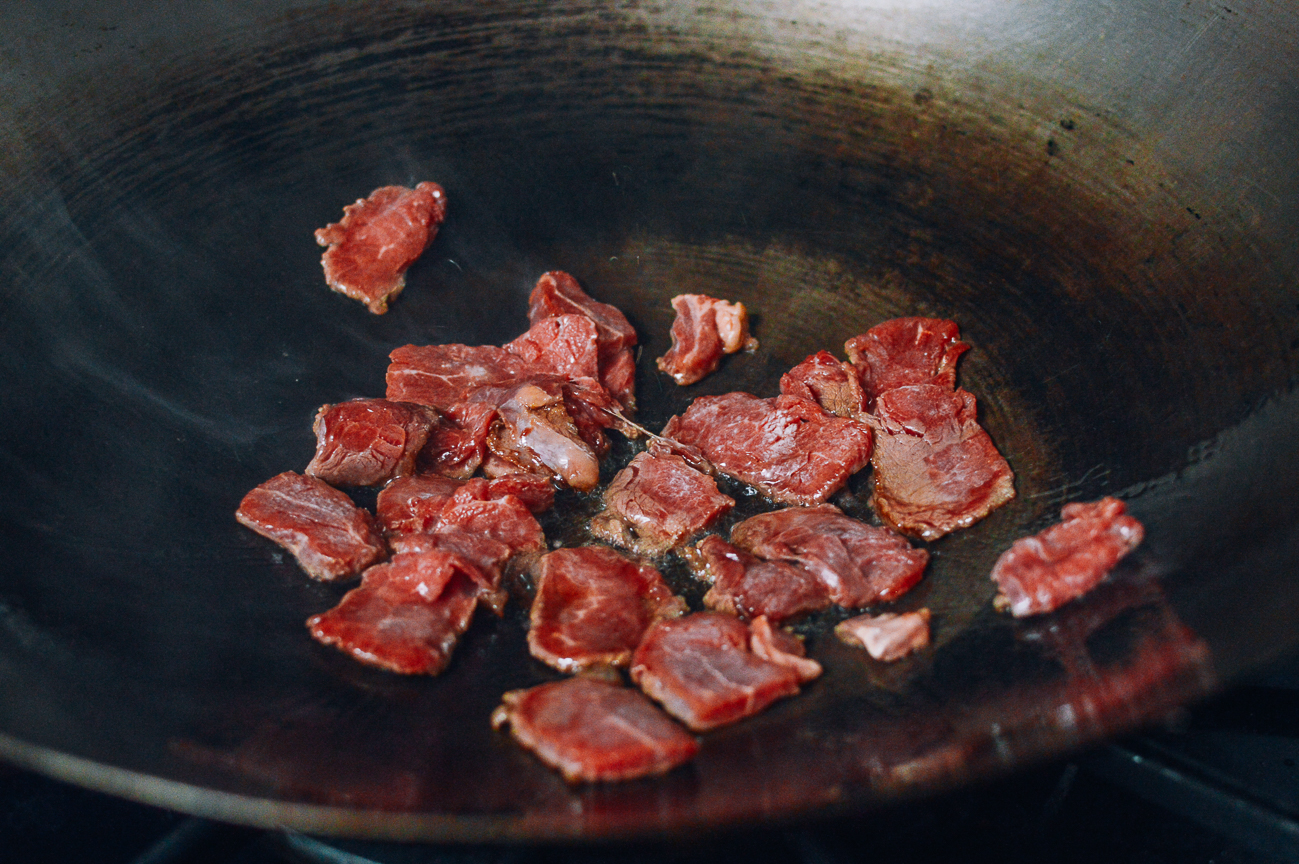
Add another tablespoon of oil to the wok and stir in the garlic.
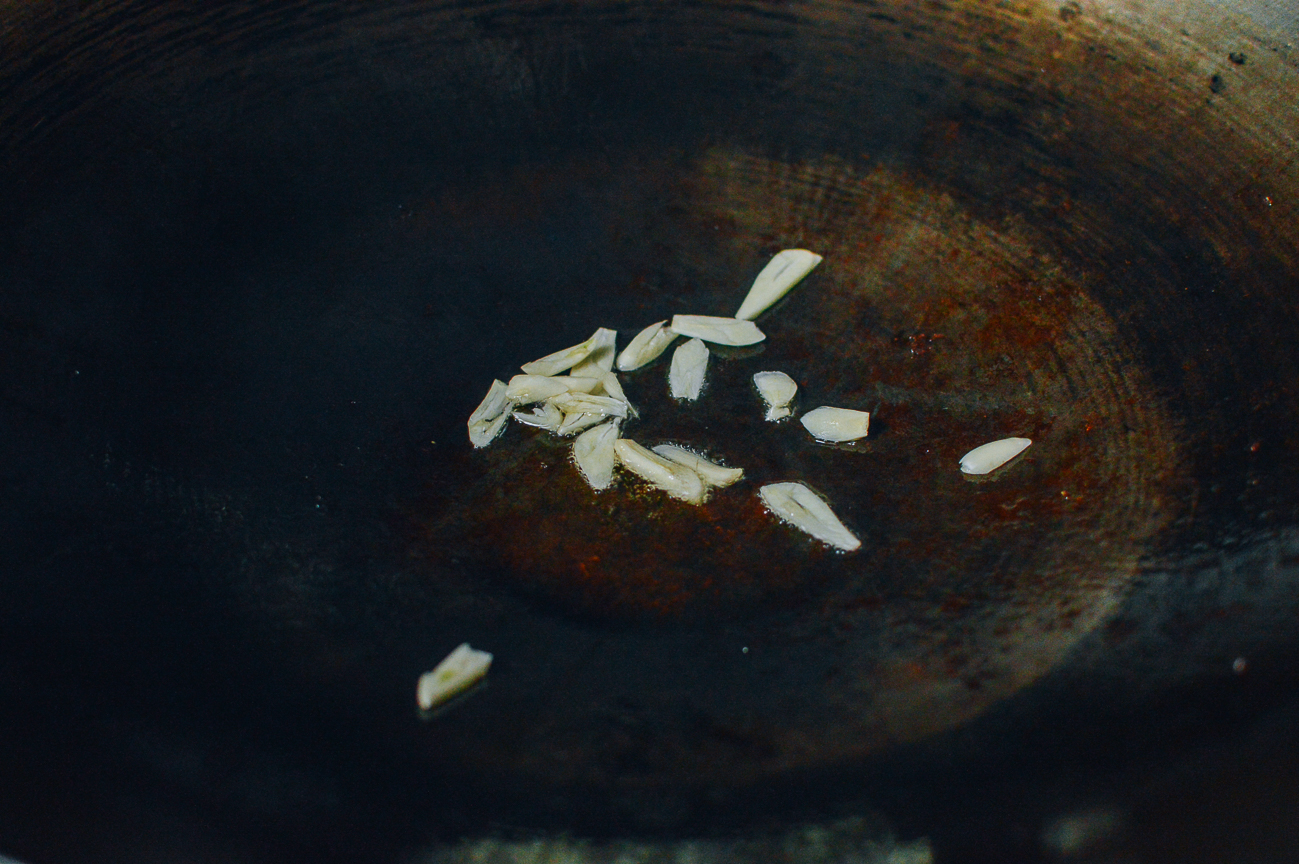
Immediately add the Chinese broccoli and stir-fry for 20 seconds (stir constantly to prevent the garlic from burning).
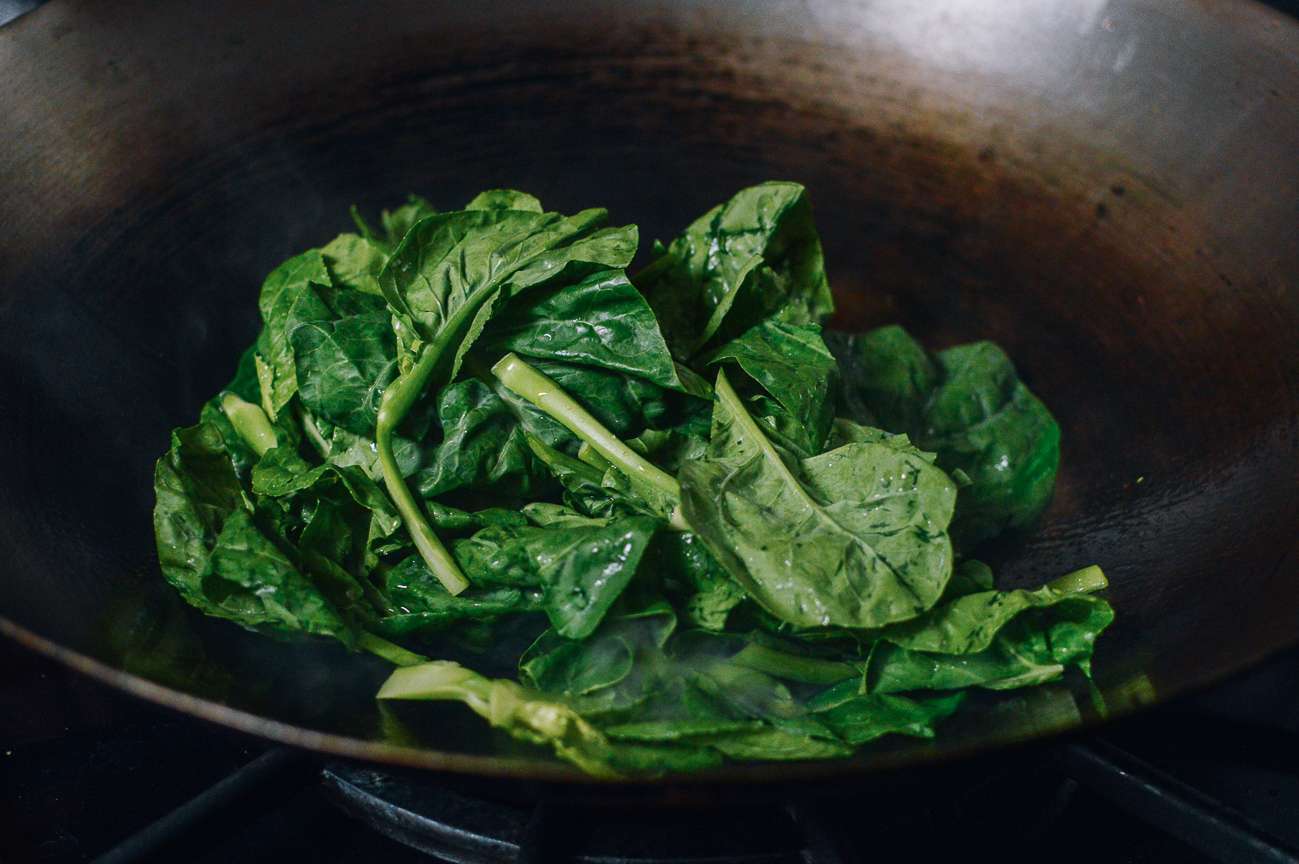
Next, spread the noodles around the wok.
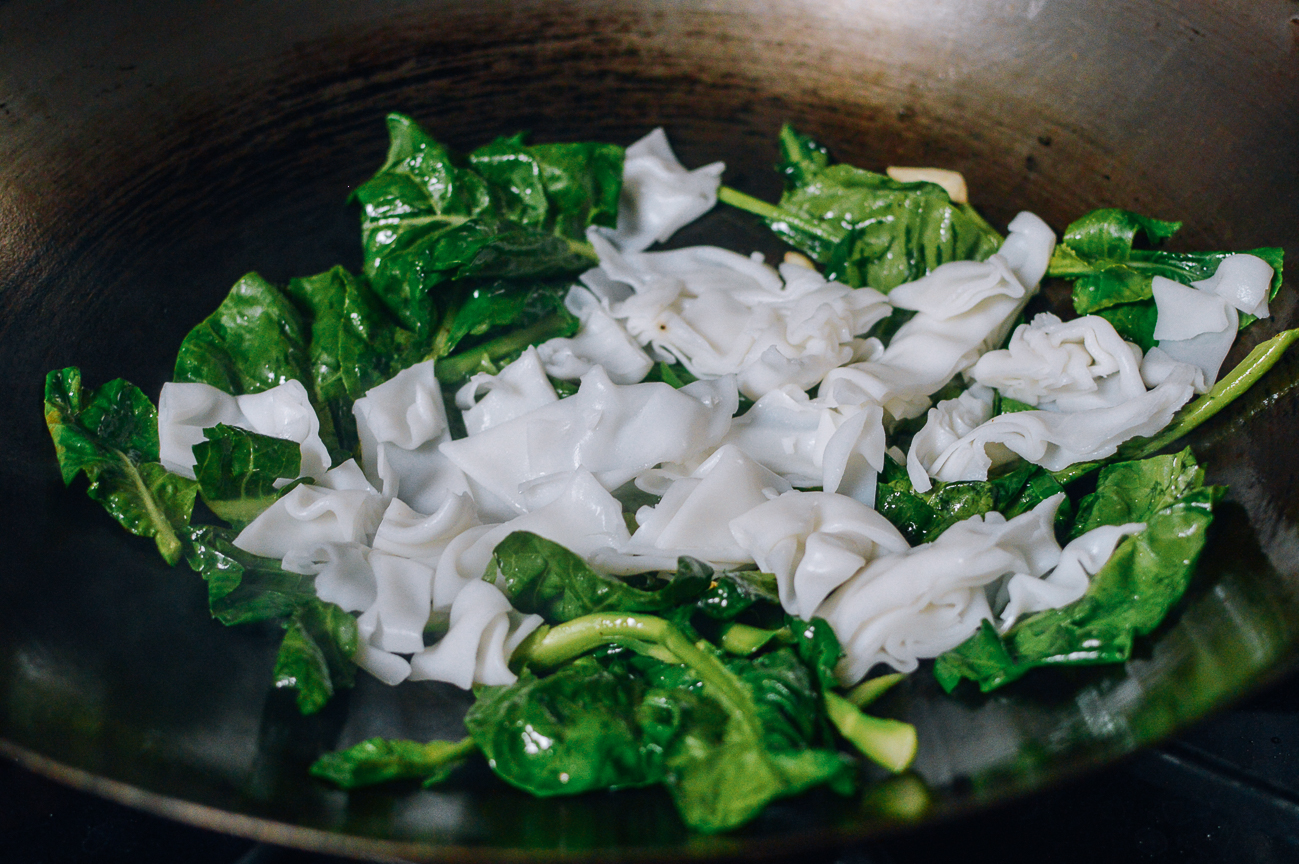
Continue to work quickly. Your wok should be at the highest heat setting. Spread the sauce mixture over the top of the noodles, and gently mix everything with your wok spatula using a scooping motion for about 20 seconds. Add the beef back to wok.
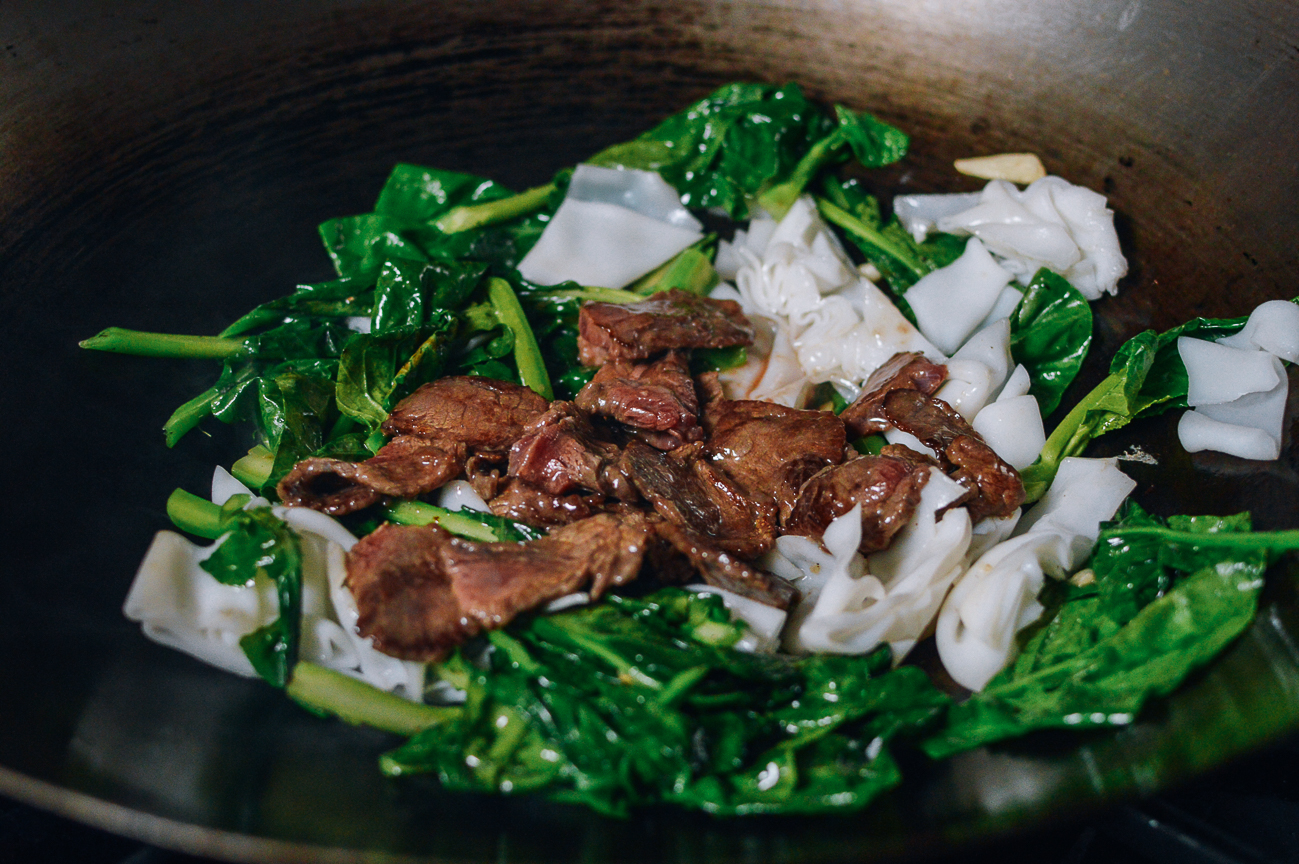
Push the mixture to one side to let the empty side of the wok heat for 10 seconds.
Add another tablespoon of oil to the wok, and add the beaten eggs. Wait 5 seconds for them to begin to cook. Scramble the eggs for another few seconds, breaking them up into smaller pieces.
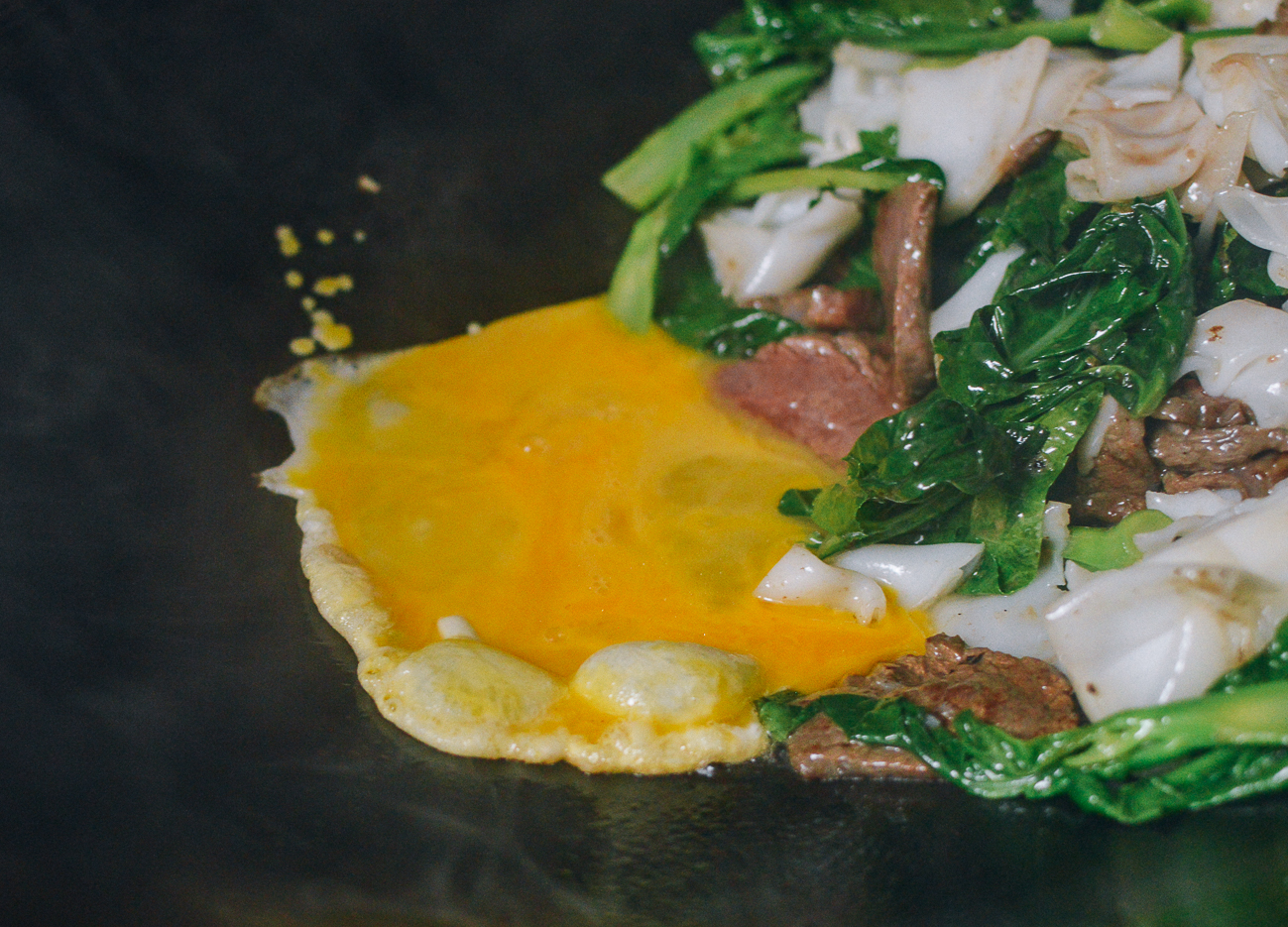
If your wok is not sizzling at this point, it probably means that your burner is not hot enough. Be patient, and the heat should "catch up."
Stir-fry the mixture just enough so the noodles heat up evenly, but don't break into small pieces. Make sure you use your wok spatula to scrape the bottom of the wok so the noodles don't stick.
As the wok heats up, you will notice that the food will stick to it less readily! But if you need to, you can add a little oil to make it easier to stir-fry.
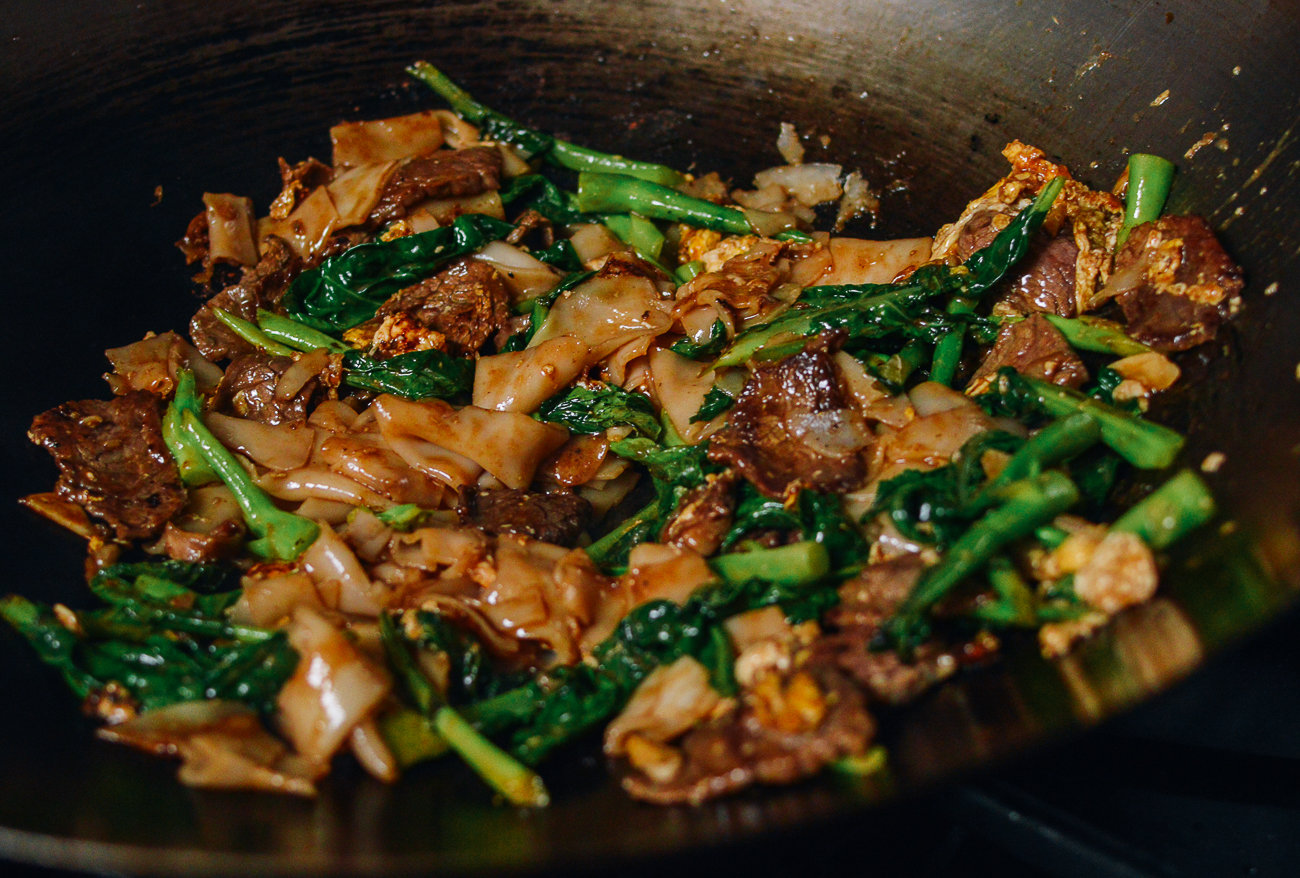
Continue cooking for another 1-2 minutes, or until the noodles are heated through. Stir less frequently during this time, so the noodles get slightly caramelized, creating that restaurant-style flavor.
Serve hot with Homemade Chili Oil or Chiu Chow Sauce on the side!
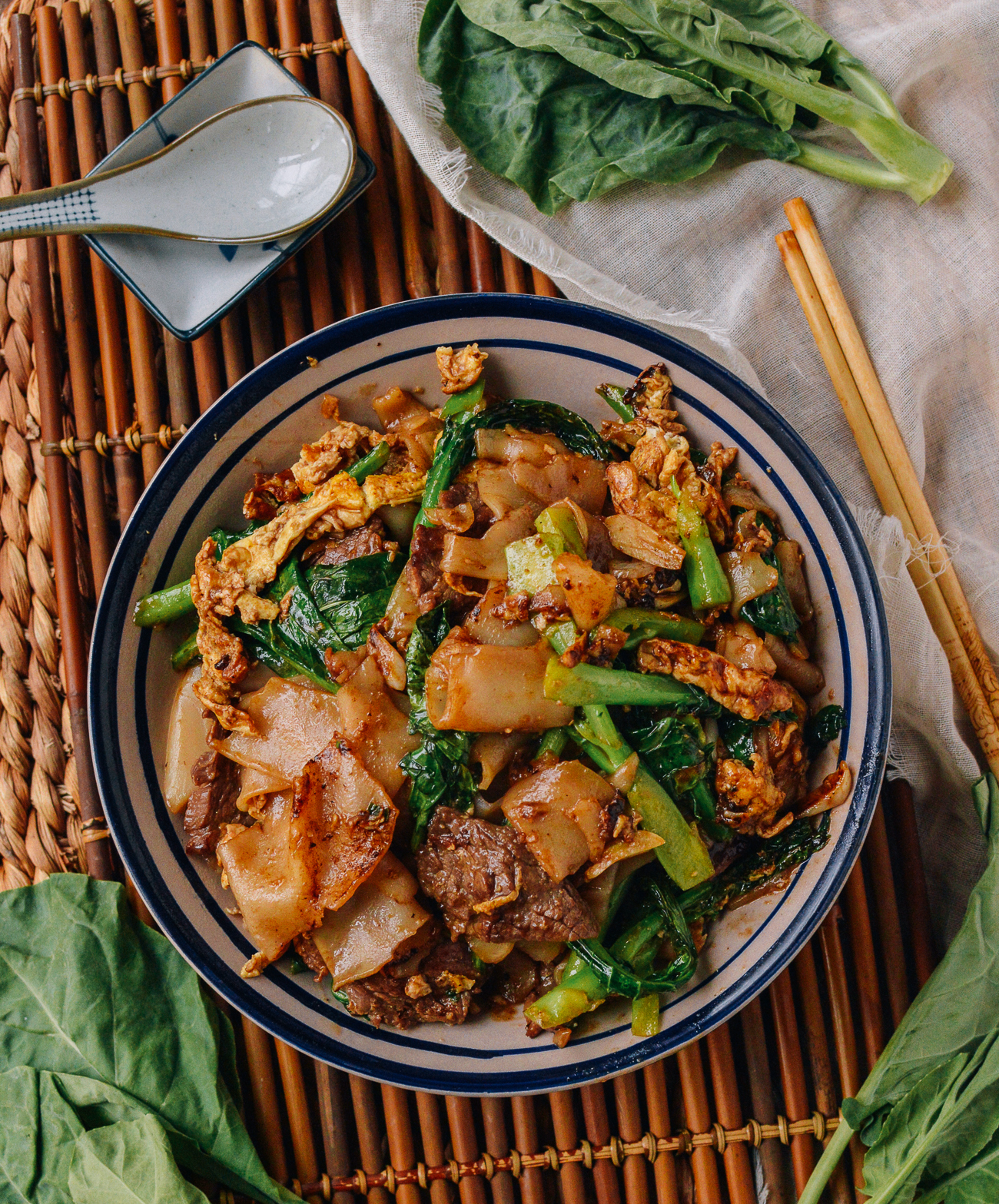
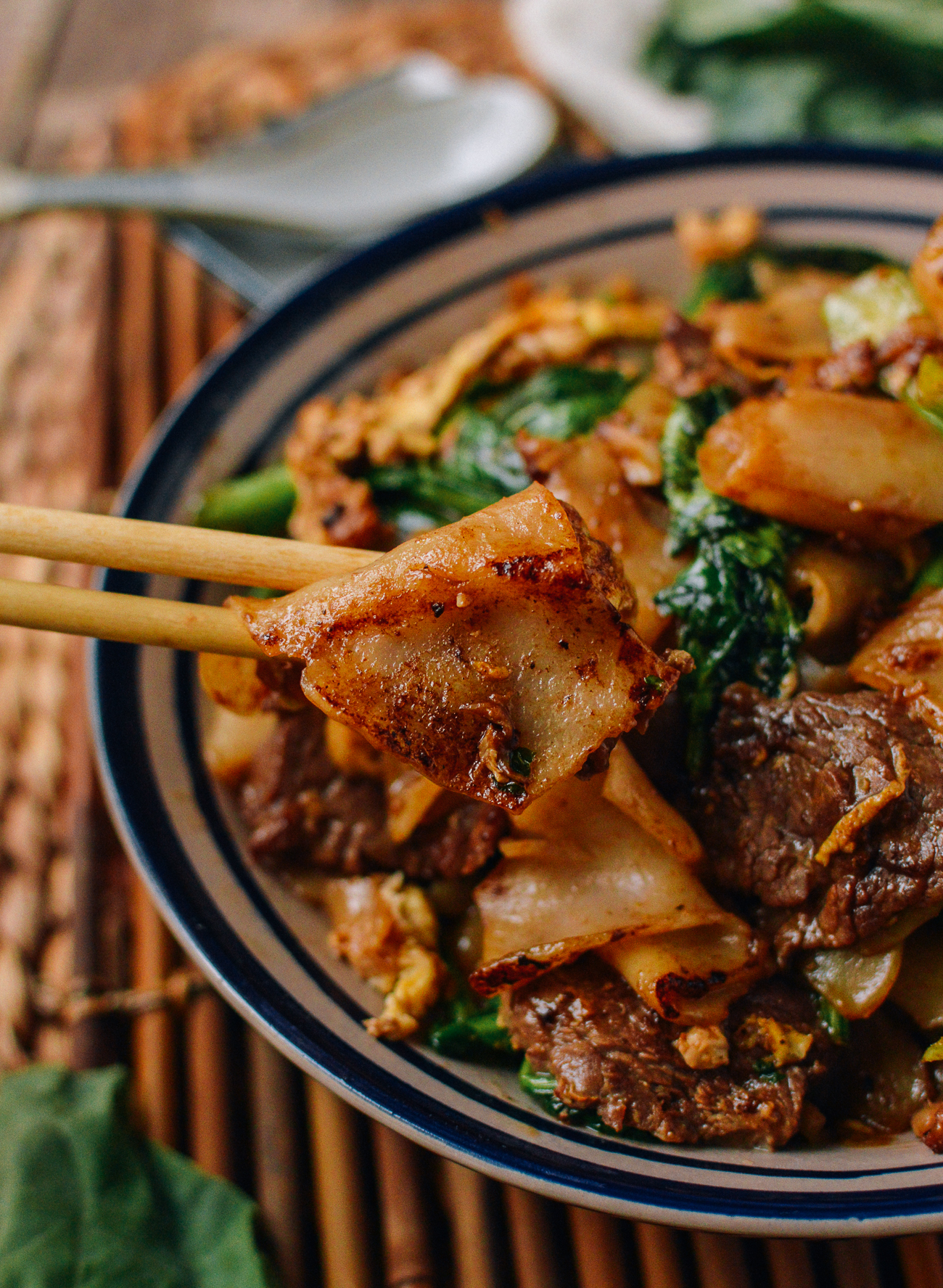
Prep: 20 minutes
Cook: 10 minutes
Total: 30 minutes
For the steak & marinade, you'll need:
- 8 ounces flank steak (thinly sliced)
- 1 teaspoon Thai black soy sauce (or regular light soy sauce)
- 1 teaspoon vegetable oil
- 1 teaspoon cornstarch (or tapioca starch)
-
To the flank steak, add the Thai black soy sauce, vegetable oil, and cornstarch, and mix until the beef is completely coated. Set aside.
-
For the rest of the dish, combine the oyster sauce, sugar, Thai soy sauce, Thai black soy sauce, fish sauce, and white pepper in a small bowl. Stir to mix well.
-
Make sure your fresh rice noodles are at room temperature. If the noodles are really cold and stiff from refrigeration, rinse them quickly under hot tap water when you are ready to stir-fry the dish. This extra step will help you avoid a big homogenous lump of noodles during stir-frying. Be sure to shake off any excess water after rinsing and use them immediately.
-
The fresh wide rice noodles really set this dish apart from other noodle dishes, so try your best to find them. Or you can use our recipe for homemade rice noodles to make them at home. If either of these options don't work, then use dried rice noodles. If using a dried rice noodle, follow the directions on the package and make sure you undercook the noodles slightly (al dente), since you will be cooking them again in the wok. After you drain the noodles thoroughly, toss the noodles with a tablespoon of oil. This will prevent them from sticking to the wok.
-
Heat your wok over high heat until it just starts to smoke, and spread 1 tablespoon of oil around the perimeter of the wok evenly to coat. Sear the beef until it is 80% cooked through, and transfer back to the marinade bowl.
-
Add another tablespoon of oil to the wok and stir in the garlic. Immediately add the Chinese broccoli and stir-fry for 20 seconds (stir constantly to prevent the garlic from burning).
-
Next, spread the noodles around the wok. Continue to work quickly–your wok should be at the highest heat setting. Spread the sauce mixture over the top of the noodles, and gently mix everything with your wok spatula using a scooping motion for about 20 seconds. Add the beef back to wok.
-
Push the mixture to one side to let the empty side of the wok heat for 10 seconds. Add another tablespoon of oil to the wok, and add the beaten eggs. Wait 5 seconds for them to begin to cook. Scramble the eggs for another few seconds, breaking them up into smaller pieces.
-
If your wok is not sizzling at this point, it probably means that your burner is not hot enough. Be patient, and the heat should "catch up." Stir-fry the mixture just enough so the noodles heat up evenly, but don't break into small pieces. Make sure you use your wok spatula to scrape the bottom of the wok so the noodles don't stick.
-
As the wok heats up, you will notice that the food will stick to it less readily! But if you need to, you can add a little oil to make it easier to stir-fry.
-
Continue cooking, stirring less frequently (so the noodles get slightly caramelized, creating that restaurant-style flavor) for another 1 to 2 minutes, or until the noodles are heated through. Serve hot with Homemade Chili Oil or Chiu Chow Sauce on the side!
Calories: 534 kcal (27%) Carbohydrates: 48 g (16%) Protein: 25 g (50%) Fat: 27 g (42%) Saturated Fat: 19 g (95%) Cholesterol: 154 mg (51%) Sodium: 1132 mg (47%) Potassium: 611 mg (17%) Fiber: 4 g (16%) Sugar: 3 g (3%) Vitamin A: 725 IU (15%) Vitamin C: 82.1 mg (100%) Calcium: 87 mg (9%) Iron: 2.8 mg (16%)
Source: https://thewoksoflife.com/pad-see-ew/
0 Response to "Tofu or Beef Pad See Ew"
Post a Comment